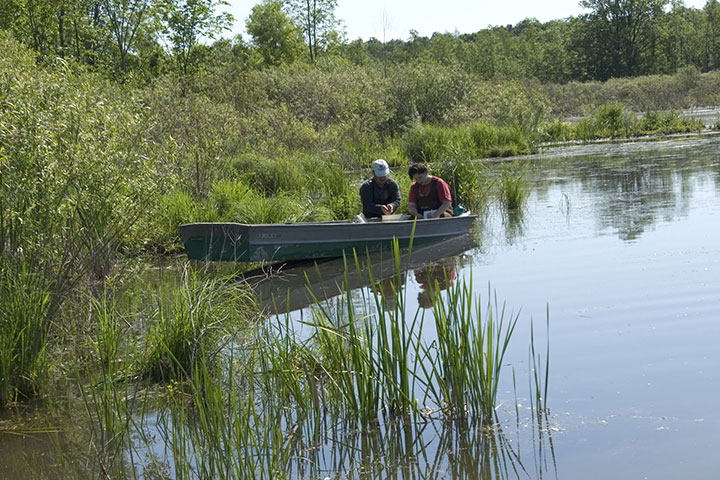Environmental and Socioeconomic Factors Associated with Public-Private Partnership Wetland Restoration in the Great Lakes Watershed
Environmental and Socioeconomic Factors Associated with Public-Private Partnership Wetland Restoration in the Great Lakes Watershed
Environmental and Socioeconomic Factors Associated with Public-Private Partnership Wetland Restoration in the Great Lakes Watershed
Program: Water Center Great Lakes Grants
All Water Center Great Lakes Grants projects »

Investigators
Tom Langen, Clarkson University
Richard Welsh, Syracuse University
David Chandler, Syracuse University
Additional Core Team Members
Michael Twiss, Clarkson University
Martin Heintzelman, Clarkson University
Project Summary
Voluntary public-private partnerships (PPP) through conservation easements are important programs for conserving and restoring wetlands in the Great Lakes watershed. However, minimal assessments have been conducted related to the impacts of these programs on wetland-associated biodiversity within agricultural landscapes. Even less is known about what motivates landowners to participate, landowners’ perceived value of the projects, the conservation management practices they undertake and the impact of wetland restoration on property values.
This project will measure the ecological, social and economic impacts of 50 restored PPP wetlands on private landholdings within the Lake Ontario/St. Lawrence River watershed in New York State. Wetland restoration projects will be evaluated based on biodiversity and environmental quality; hydrology and hydraulics; property owner knowledge, attitudes and behaviors; and impact on property value. The focus will be on the current suitability of PPP wetland restoration projects for wildlife habitat, especially for Species of Greatest Conservation Need (SGCN), and the potential for habitat improvement for SGCN and other wildlife. Key environmental and socioeconomic indicators and drivers of PPP wetland restoration success will be determined and recommendations for increasing landowner participation in such programs will be developed.
Representatives from the USDA Natural Resources Conservation Service, Ducks Unlimited and U.S. Fish and Wildlife Service will be engaged throughout the project to facilitate outreach to participating landowners and help shape outputs.